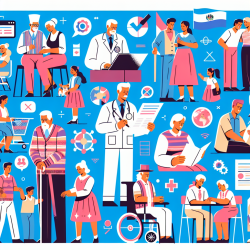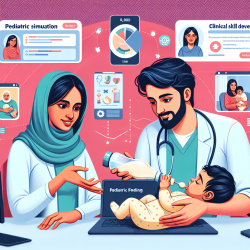As practitioners dedicated to enhancing the lives of children through innovative therapeutic interventions, understanding and leveraging health literacy (HL) is crucial. The recent research article "Health Literacy in the Context of Implant Care—Perspectives of (Prospective) Implant Wearers on Individual and Organisational Factors" provides profound insights that can help us refine our approach to implant care. By examining both individual and organizational factors, this study offers valuable data-driven recommendations for improving health literacy and outcomes in implant care.
Understanding Health Literacy in Implant Care
Health literacy is not just about the ability to read medical information; it encompasses the capacity to access, understand, and use information to make informed health decisions. The study highlights two key levels of HL:
- Individual HL: This involves competencies in handling and appraising technical and medical information, as well as communication skills necessary for informed decision-making.
- Organizational HL: This refers to the healthcare system's responsiveness to individuals’ information needs, considering their moral values and convictions.
Key Findings and Practical Applications
The study’s qualitative approach, involving group discussions and diary studies with implant wearers and their parents, reveals critical insights:
1. Handling Technical and Ambiguous Information
Practitioners should prioritize developing their patients' ability to manage complex technical information related to implants. This involves:
- Providing clear, accessible information about the technology and its implications.
- Offering training sessions to enhance patients' understanding and management of their implants.
2. Dependence and Responsibility
Recognizing the emotional and ethical dimensions of implant care is vital. Practitioners should:
- Foster a supportive environment that acknowledges patients' dependence on technology.
- Encourage shared decision-making, ensuring that patients feel empowered and responsible for their health outcomes.
3. Ethical Aspects of Health Literacy
Ethical considerations are intertwined with health literacy. Practitioners must:
- Address ethically relevant values during counseling and care processes.
- Ensure that interventions are aligned with patients' values and life goals.
Encouraging Further Research
The study underscores the importance of continuous research to fill gaps in our understanding of HL in implant care. Practitioners are encouraged to:
- Engage in ongoing professional development to stay updated on the latest research.
- Participate in or initiate studies that explore new dimensions of HL and implant care.
To read the original research paper, please follow this link: Health Literacy in the Context of Implant Care—Perspectives of (Prospective) Implant Wearers on Individual and Organisational Factors.










